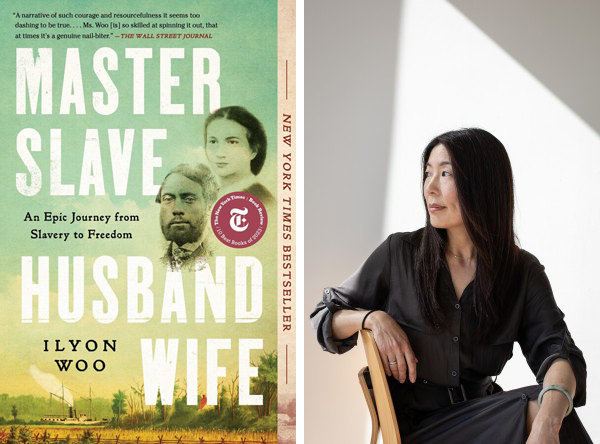Korean-American author wins Pulitzer Prize for Biography
Korean-American author wins Pulitzer Prize for Biography
Posted May. 08, 2024 07:45,
Updated May. 08, 2024 07:45

A Korean-American author has made history by winning the prestigious Pulitzer Prize for a non-fiction book, marking the first time a Korean-American has received this honor in the book category. A Korean-American had previously been awarded in journalism.
On Saturday, the Pulitzer Prize selection committee announced that Woo Il-yon, a second-generation Korean-American, is the co-winner in the biography category for his work "Master Slave Husband Wife: An Epic Journey from Slavery to Freedom." Woo's father, Woo Gyu-seung, is an architect known for designing the Whanki Museum and the National Asian Cultural Centre. Woo Il-yon earned a bachelor's degree in humanities from Yale University and a doctorate in English literature from Columbia University.
The book narrates the remarkable true story of William and Ellen Craft, a black slave couple from Georgia in the southern United States who, in 1848, embarked on a daring journey to the northern United States. Ellen, disguised as a wealthy white man, and William, her "slave," covered approximately 1,609 kilometers by steamboat, wagon, and train, escaping from slave traders, military officers, and potential buyers in their pursuit of freedom. Ultimately, they found refuge in England, where they contributed to the abolition of slavery. The author explains on his website that the book not only delves into their love story but also explores various forms of love, including parent-child relationships.
Established in 1917, the Pulitzer Prize recognizes excellence in journalism (including news and investigative photography) and the arts (books, drama, and music). While a Korean photojournalist has previously won a Pulitzer Prize in journalism, this marks the first time a Korean has won in the book, drama, or music categories.
The Pulitzer Prize selection committee described Woo's work as " three epic journeys compressed into one monumental bid for freedom” and “one that would challenge the nation’s core precepts of life, liberty, and justice for all—one that challenges us even now.”
황인찬 hoho@donga.com







